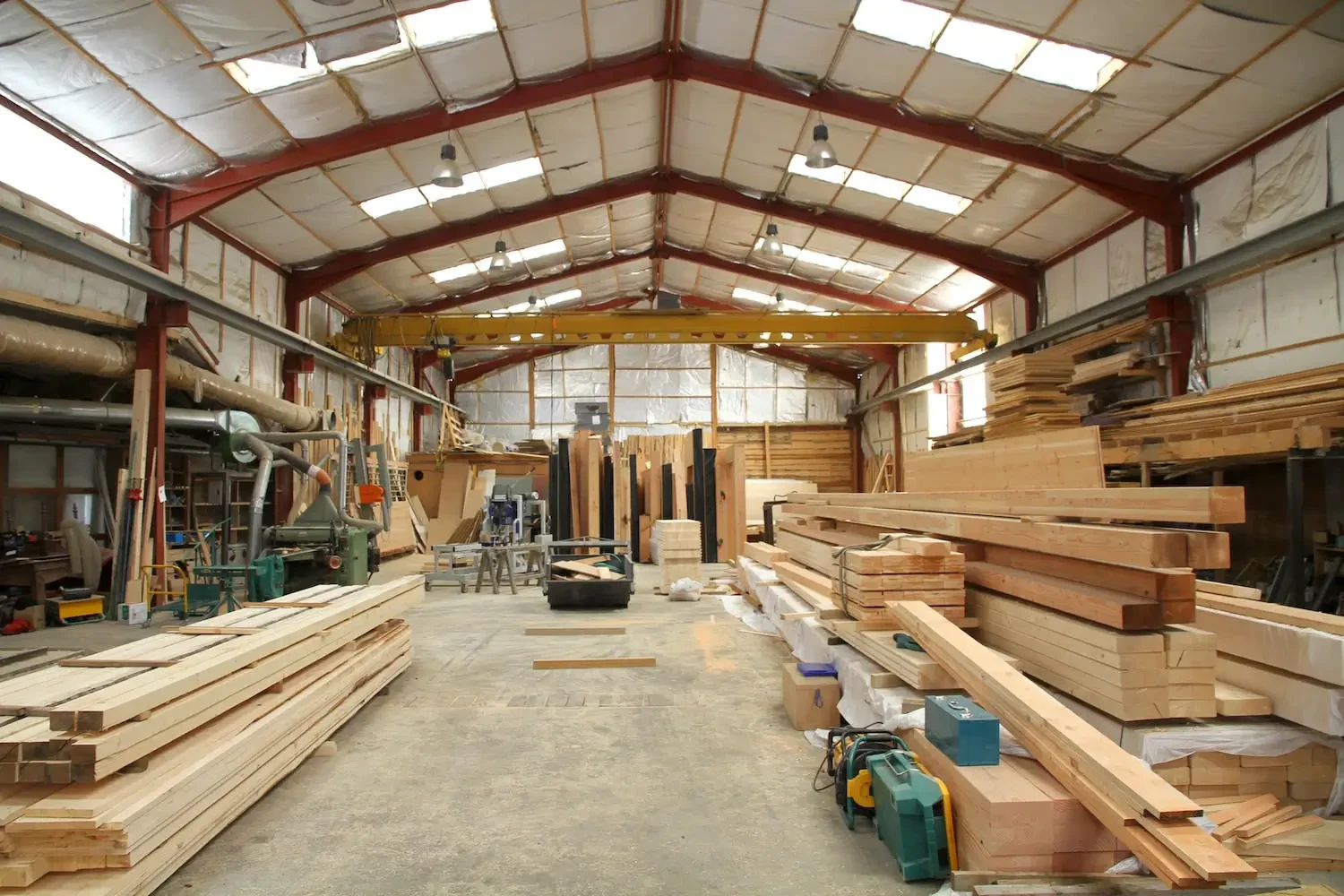Several types of material are used to produce furniture. The most commonly used materials include particleboard, MDF, plywood, veneer sheets, furniture board, and lumber. Once you get a clear picture of each material, it is easier to choose the best ones to make your furniture out of.
Particleboard Is Good Only for A While
Particleboard is a composite panel product. It is a composite material made by pressing wood particles (sawdust and shavings) and glued with formaldehyde resins. Originally, the material was invented in the U.S. as a temporary furniture for refugees.
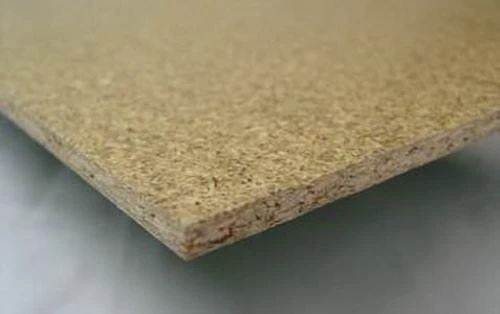
The particleboard's main and only advantage is its stability. Products made of particleboard preserve their appearance and dimensions in typical indoor conditions. It should be noted that particleboard is dead material. Unlike furniture made of wood, particleboard does not require keeping particular relative humidity of the air. These are all the advantages of this material.
If you have already worked with particleboard, you probably know that this material is not resistant. Some common problems include broken edges, broken grooves (under the weight of the shelf), sheared surfaces, and much more. Moreover, the material has a negative response to water impact.
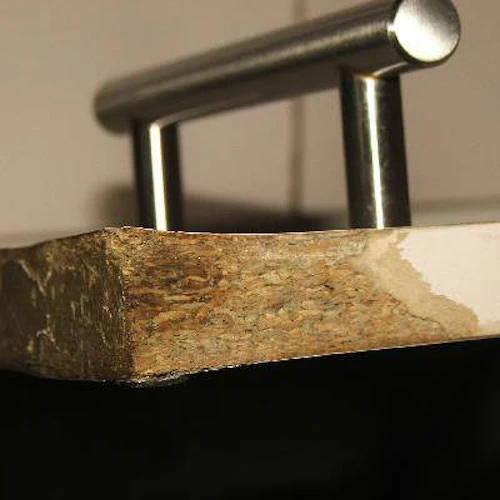
It is hard to repair or assemble particleboard furniture for a second or third time.
Besides, don't forget how particleboard is glued together. The use of formaldehyde is considered harmful to humans and is regulated by law. As a result, the particleboard panels became safer, but the cost increased. Today, the panels cost a little less than the natural material.
MDF Is Durable, But Not Natural
MDF is among the less toxic materials. MDF boards are dry pressed from finely dispersed wood chips at high pressure and temperature.
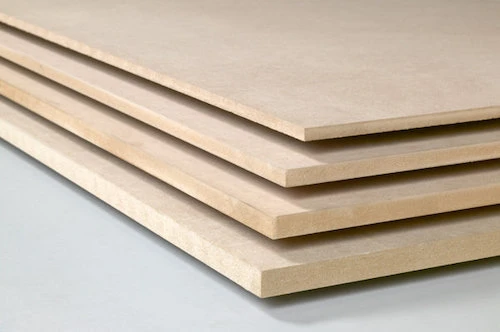
Urea resins are used as a binder for MDF. Consequently, it has a low formaldehyde emission, similar to that of natural wood. That is why MDF stands out as a more environmentally friendly material than particleboard, and it is also used in furniture production.
MDF's advantages include durability (MDF is twice as durable as particleboard).
The second advantage is moisture resistance, which makes it suitable for use in the bathroom.
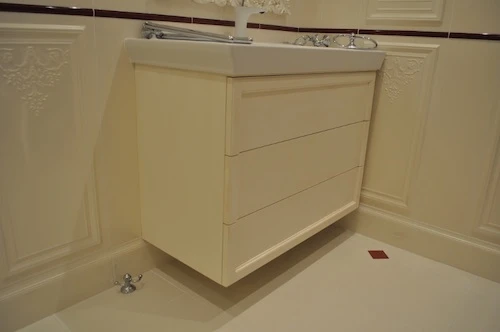
MDF's main disadvantage is its artificial origin. You can feel it even on veneered products.
Veneer Is Never Alone
Veneer is a thin layer of wood no thicker than 3 mm. Natural wood veneer is obtained by making a thin cut of a part of the surface from solid wood. The thinnest veneer commonly used by craftsmen is of 0.6 mm.
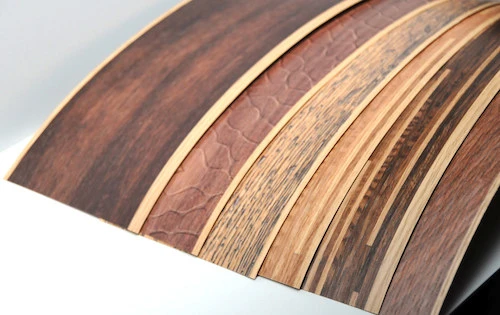
The veneer sheet is never used independently. The woodworker glues the veneer onto the material that serves as the base. Usually, the base material is MDF or plywood, but sometimes you can also find veneered particleboard. In this way, the veneer improves the craftsman's possibilities and reduces the cost of expensive wood products.
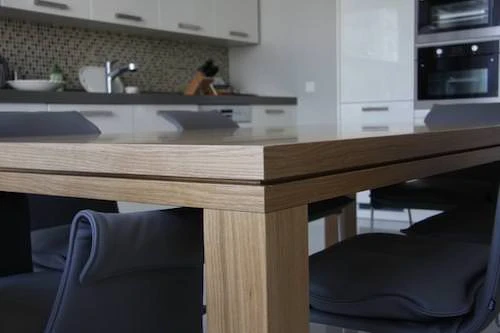
Keep in mind that veneered furniture requires compliance with specific indoor conditions and doesn't tolerate excessive moisture. Small defects on the veneer surface can be repaired unless it is the thinnest veneer.
Plywood
Plywood represents sliced sheets of wood glued together using urea resin.
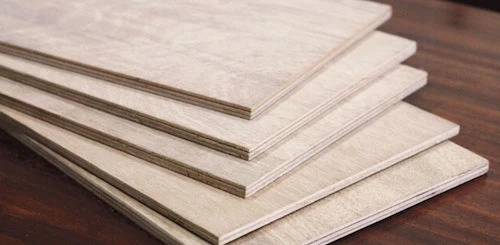
While veneer is often made by using expensive types of wood, plywood production involves locally prevalent types of wood. For example, in Estonia these are birch and pine.
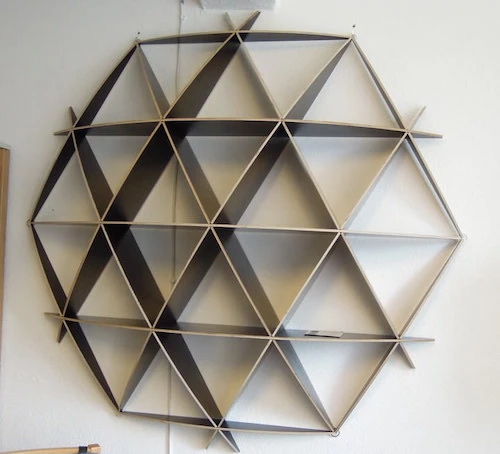
Plywood furniture is as durable asfurniture made ofsolid wood. Plywood resists even when reassembling furniture. Another major advantage of plywood is its flexibility.
Glued panel
The glued panel consists of glued bars (lamellas). The lamellas are cut from a board, and then are glued together across the width (edge glued wood panel) or across the width and length (fingerjoint wood panel).
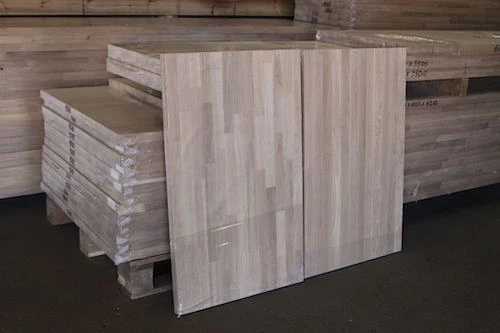
The panel an easy material to work with. It requires less refinement in contrast to other materials. The panel also preserves the properties of wood such as durability and sustainability. Just likelumber, the panel is liv ematerial that can deform over time. Some rules for working with board can help prevent such cases. For example, you should not hold the board vertically..
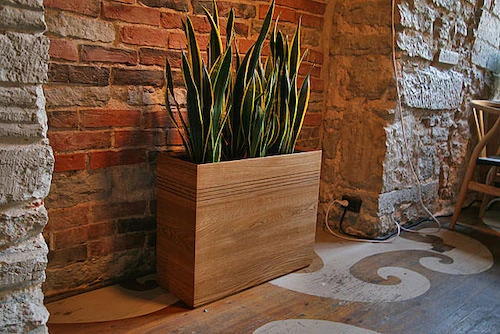
The panel helps save the craftsman time and resources. Most of the work and optimization of the material has already been done by the manufacturer.
Lumber
Lumber is the most authentic material used to make furniture. Once sawn, the wood is cut into boards. Following the drying and trimming of the bark, we get factory and shop lumber.
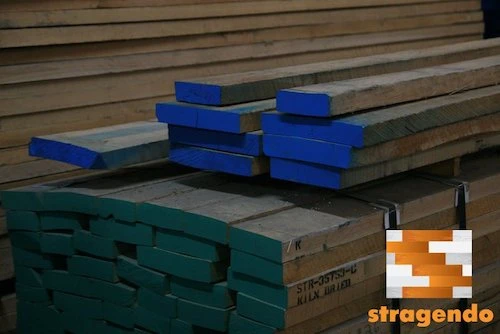
The lumber’squality differs. The cost of the lumberof different quality can vary from 300 to 2000 euros. When assessing the lumber’squality, the focus is on the correct drying, even geometry,and the absence of defects.
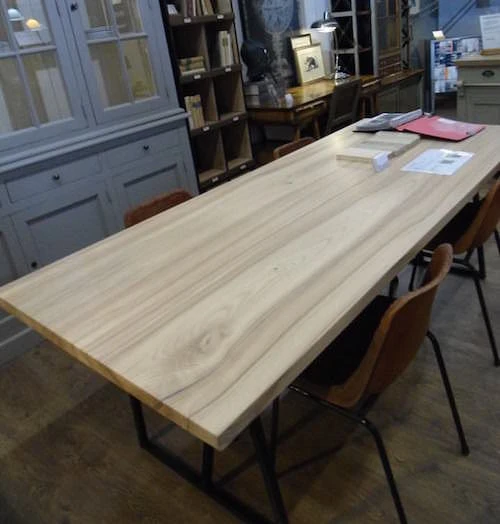
No matter how well-dried the material, wood furniture is prone to shrinkage and, as a consequence, cracks. However, such problems can be easily fixed. Still, always remember that wood is a living material.

